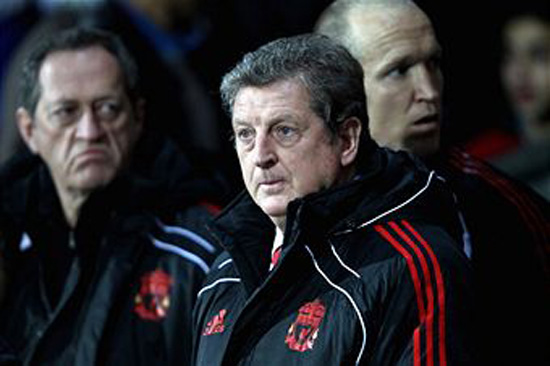By Mike Rowbottom
January 11 – The League Managers Association has rung the alarm bell over the subject of short-term hiring and firing policies which “scapegoat” managers, increasingly damaging the fabric of the English game.
In an open letter to the football media, entitled Looking Ahead to 2011, the LMA highlights its growing concern over the way managers are being sacked, and over the growing trend for such decisions to be made by club owners rather than boards of directors.
“So far this season, there have been 29 departures of football managers.
“Nineteen of these are dismissals, the remaining 10 are resignations.
“Twenty-one coaches have also been dismissed as a result of changes of manager,” the letter says.
“These figures may be a slight improvement on the figures for the corresponding period in 2009-10, when some 33 managers had departed by the end of the first week of January in 2010, 25 of whom were dismissed.
“However, they actually serve to highlight the continued chronic short-termism in football manager employment.”
The letter points out studies conducted in 2002 (Hope) and 2010 (Bridgwater) which indicated that gains from changing managers are marginal, and always costly.
“In recent seasons and recent weeks, a number of managers have been dismissed for losing a handful of games in what might well be short-term blips within the normal range, rather than the sustained downturn seen in the past before a managerial change,” it continues.
“It is clearly the decision of club chairmen whom they hire and fire and when they choose to do this, but the statistics show that a club is likely to end up worse off when they sack their manager, they have less points and are often significantly out of pocket due to monies spent on compensation and paying up contracts.
“Clubs in lower leagues simply cannot afford to keep sacking managers.”
It adds: “Short-termism does not work.
“It is hugely destabilising to the club and its staff and a new manager wishing to stamp his own mark on the playing squad brings with him the additional cost of the transfer budget needed to do so.
“Yet, in football, there is an incomprehensible belief that the continued sacrificing of the football manager, the ‘scapegoat’ and installing another will turn around a football club’s performance.”
The LMA also decry the manner in which such decisions are carried out.
“How often does a manager have no warning of what is about to happen?,” the letter continues.
“How often does he discover news of his dismissal from the media, from his worried family who have heard the reports?
“How often when calling the club to check the truth of such accounts has a manager been told that this is not true, only to discover soon after that he has indeed been dismissed?
“This is no way to treat any employee, let alone those whose lives are inextricably bound up in the clubs and game they love.”
The letter points out that the average tenure of dismissed football managers across the four leagues has declined from three-and-a-half years in 1992 to one year and four months last season.

Liverpool manager Roy Hodgson (pictured) recently departed after he had been in the post just six months.
“Using the average figure, however, masks some frightening figures at the lower end of the scale,” it adds.
“The most common period of time for which a first-time manager is in post is between six months and a year.
“Almost half of all first time managers do not ever get another football manager role, so this may be the total time they have to prove themselves.
“Currently, 33 league managers, including 10 in the npower Championship have been in charge for less than one year.”
The latter also addresses the damaging incidence of such decisions over hiring and firing to come directly from wealthy individuals.
“Traditionally football club chairmen, or perhaps chief executive officers, made decisions to hire and fire football managers.
“Increasingly, however, these decisions seem to be made by clubs’ owners, not those whom they put in place to run the club.
“This is a dangerous trend which runs counter to the advice of the Birkbeck Football Governance reports and the Turnbull protocol, both of which advocate that organisations have an independent chairman, non-executive directors and a board which provides ‘checks and balances’ to protect the future of the organisation.
“Placing all of the decision-making power in the hands of one or maybe two individual owners, no matter how well intentioned they are, is high-risk.
“Football clubs are the ‘crown jewels’ of the English game and we should support best practice in governance to ensure that they survive and thrive.”
The letter ends by welcoming the recent go-ahead for the National Football Centre in Burton and issues a challenge to the English game to respond to the profound disappointment of failing to secure the 2018 World Cup finals.
“Sepp Blatter lauded the football infrastructure in England during the run-up to the 2018 bid saying ‘Everything is there – fans, stadiums, infrastructure’ and calling England the ‘mother of football’.
“If we cannot host the 2018 World Cup, despite having the best technical report and the best infrastructure with which to do so, let us ensure that by 2018 England is in a position to win the World Cup on the pitch.
“We should aim to have the best young players coming through, working with the best coaches, sport science and medicine.
“Moreover we should have an ongoing system to lead the world in football coach and management education.”
Contact the writer of this story at zib.l1745189536labto1745189536ofdlr1745189536owedi1745189536sni@m1745189536ottob1745189536wor.e1745189536kim1745189536
